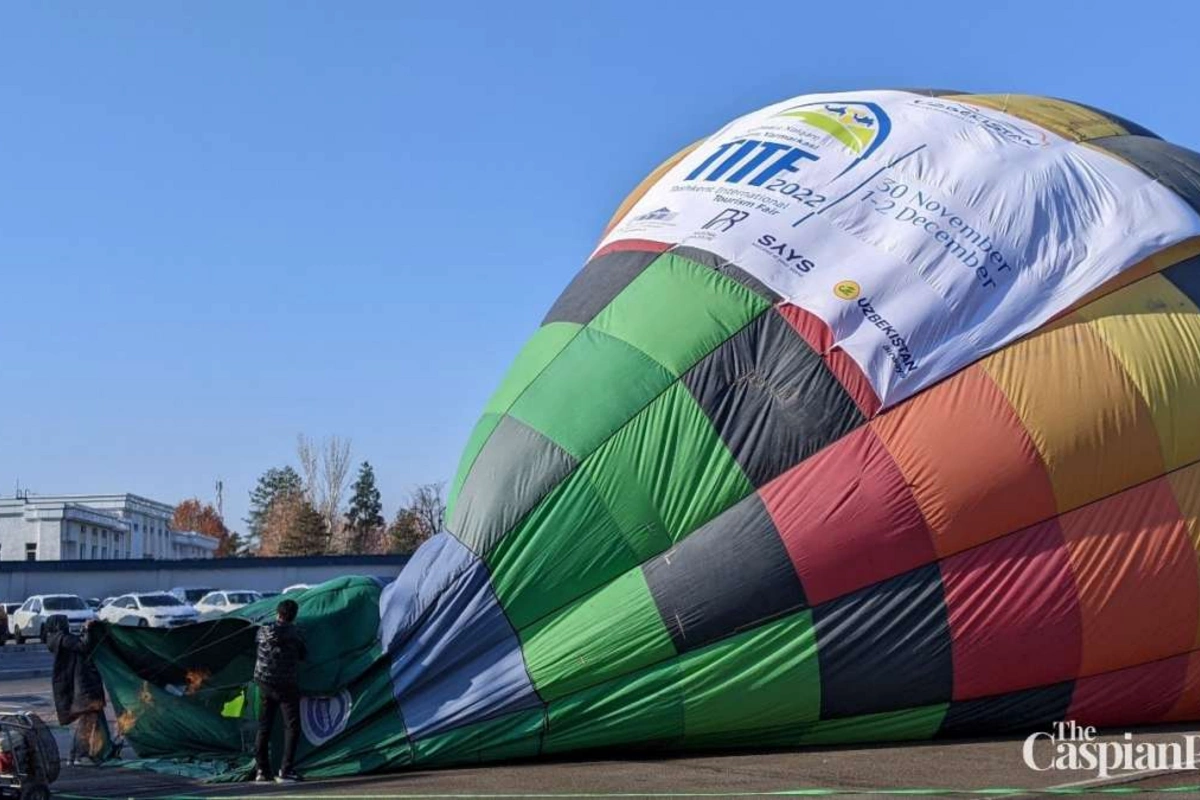
The Tashkent International Tourism Fair is the biggest showcase for new ideas in tourism in the Central Asia region. Uzbekistan's Samarkand is set to be the World Tourism Capital in 2023.
Images provided by Mark Elliott
While it can’t expect to compete in sheer scale with Berlin’s ITB or London’s WTM, the Tashkent International Tourism Fair (TITF) is the biggest showcase for new ideas in tourism in the Central Asia region. Held annually since 1995, except during COVID years, the latest edition (November 30-December 2, 2022) was one of the biggest ever, filling two major halls in Tashkent’s UzExpocenter.
Inevitably enough, the fair’s leading theme was “Tourism on the Silk Road,” playing to Uzbekistan’s tourism strengths as home to three of the world’s most memorable silk route cities, Khiva, Bukhara and Samarkand. The latter is due to become the World Tourism Capital in 2023 and thus host the 25th general assembly meeting of the UN World Tourism Organization (UNWTO).
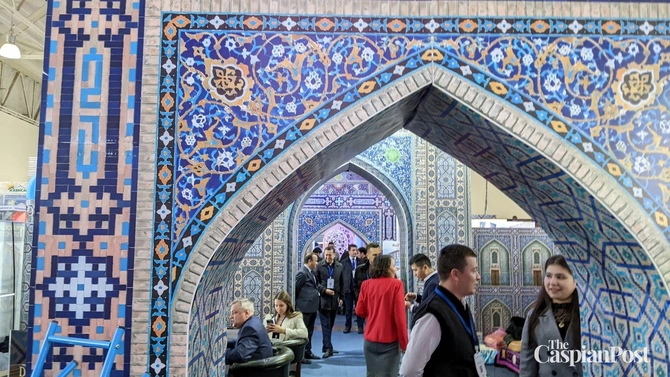
However, the very professionally organized fair has also made great strides in highlighting many facets of Central Asian tourism beyond the beautiful, blue-tiled monuments of the historic gem cities. Both Kyrgyzstan and Uzbekistan were keen to unveil the latest plans for modern ski resorts. Notably, a range of additional infrastructure has been recently added to the Amirsoy ski area - barely an hour’s drive from Tashkent. Another impressive facet was the growing confidence of Uzbekistan’s winemakers, with several producers offering tastings. While many mass-market vintages proved distinctly mediocre, there’s no doubt that quality viniculture is starting to gain ground and a few of the wines we tasted were very pleasurable indeed – notably the boutique offerings of gastronomic tour leader Sergei Danilov. A man of many passionate interests, Sergei is one of the country’s most inventive winemakers, using rare grape varieties such as Khindogni (typically from Karabakh) as well as Rangdor, which yields a particularly impressive full-bodied yet sprightly red, sold in small quantities through his idyllic winery-getaway, Khovli Kolkhoz.
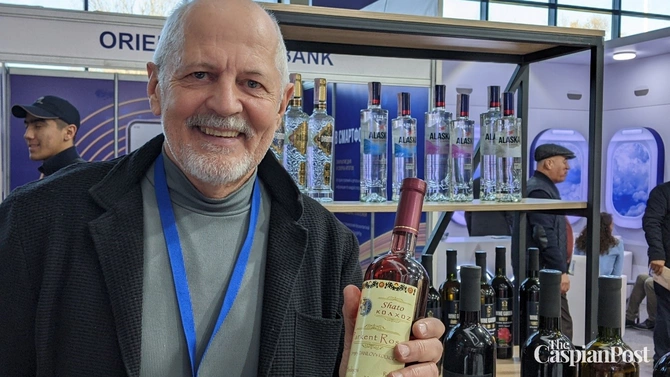
Sergei Danilov is a boutique wine maker and gastronomic tour innovator in Uzbekistan.
Another notable feature of the fair was the effort to re-galvanize regional medical tourism. Azerbaijan’s tourism board was on hand to tempt Central Asians to jump the Caspian and sample unique oil bath treatments at Naftalan. Meanwhile, Shakhnoza Yakubova demonstrated how AKFA, one of Uzbekistan’s snazzy new general-purpose hospitals, offers top-quality medical care, undercutting surgeon fees in most other countries, but also offers a hotel-style set of facilities, including a gym, spa and pool for recovering patients. I got a chance to test out firsthand the truth to claims of great-priced, high-quality medical help in Tashkent when a lost filling led me to experience a random local dental clinic. An English-speaking dentist apologized that I’d have to wait 15 minutes (I had no appointment), and after 45 minutes of expert care, I was patched up as well as I’d have expected at home yet for a mere 30 USD.
Back at the fair, a series of panel discussions formed the core programme for each of the three days. If listeners had expected a series of bureaucratic self-congratulations, they were in for a surprise. While some talks had a certain salesmanlike air, others included brutally frank critiques of past practices and gave the sense that ‘new’ Uzbekistan is a much more open place than it had been in earlier decades. In one particularly amusing dispute, one panellist begged the authorities to “stop PR-ing plov,” i.e. not to go overboard on foreign promotion with gigantic cauldrons of the national dish – richly oiled rice with yellow carrot and hunks of meat. While universally adored locally, it doesn’t always create a positive image in western countries. The next speaker took off on an opposite tack, suggesting that what was needed was a lot MORE plov, creating an international network of fine plov restaurants such that visitors would already be impatient to come to Uzbekistan to eat the real thing. Perhaps both are right, albeit with the latter perhaps only relevant in more deeply carnivorous regional countries.
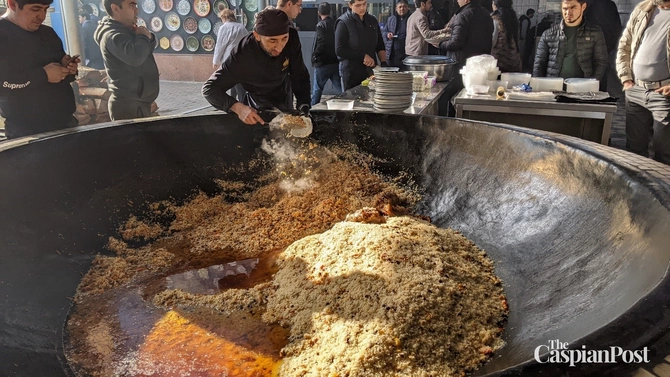
Plov, Uzbekistan's archetypal national rice-based dish, is cooked in a gigantic wok known as a qozon.
In complete contrast, the culminating highlight of the fair was a remarkable fashion show. If there was ever a way to underline how Uzbekistan is a modern hotbed of creativity, this was it. The show started with a somewhat surreal musical performance giving an artistically stylized ‘historical’ progression of the great silk route. Then the catwalk filled with a parade of poised, beautiful, suitably sullen-faced models in a display worthy of Paris or London. The garments on show were all by local designers who, in most cases, had managed to work Uzbek fabric motifs into an international blend of moods resulting in many an original piece.
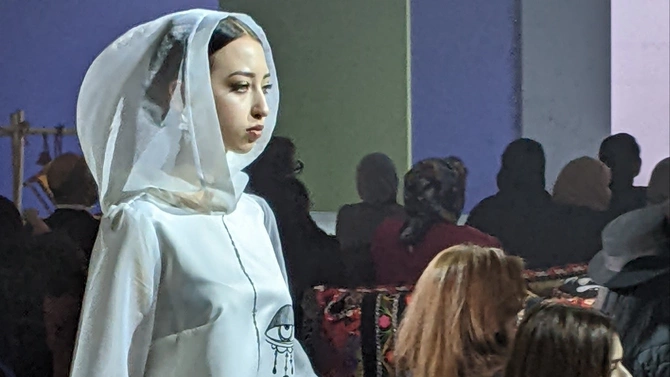
TITF closed with a series of awards for the best stands and promises of a bumper year for tourism in 2023.
Share on social media